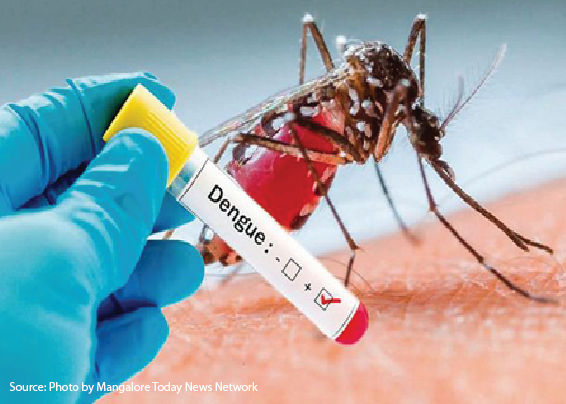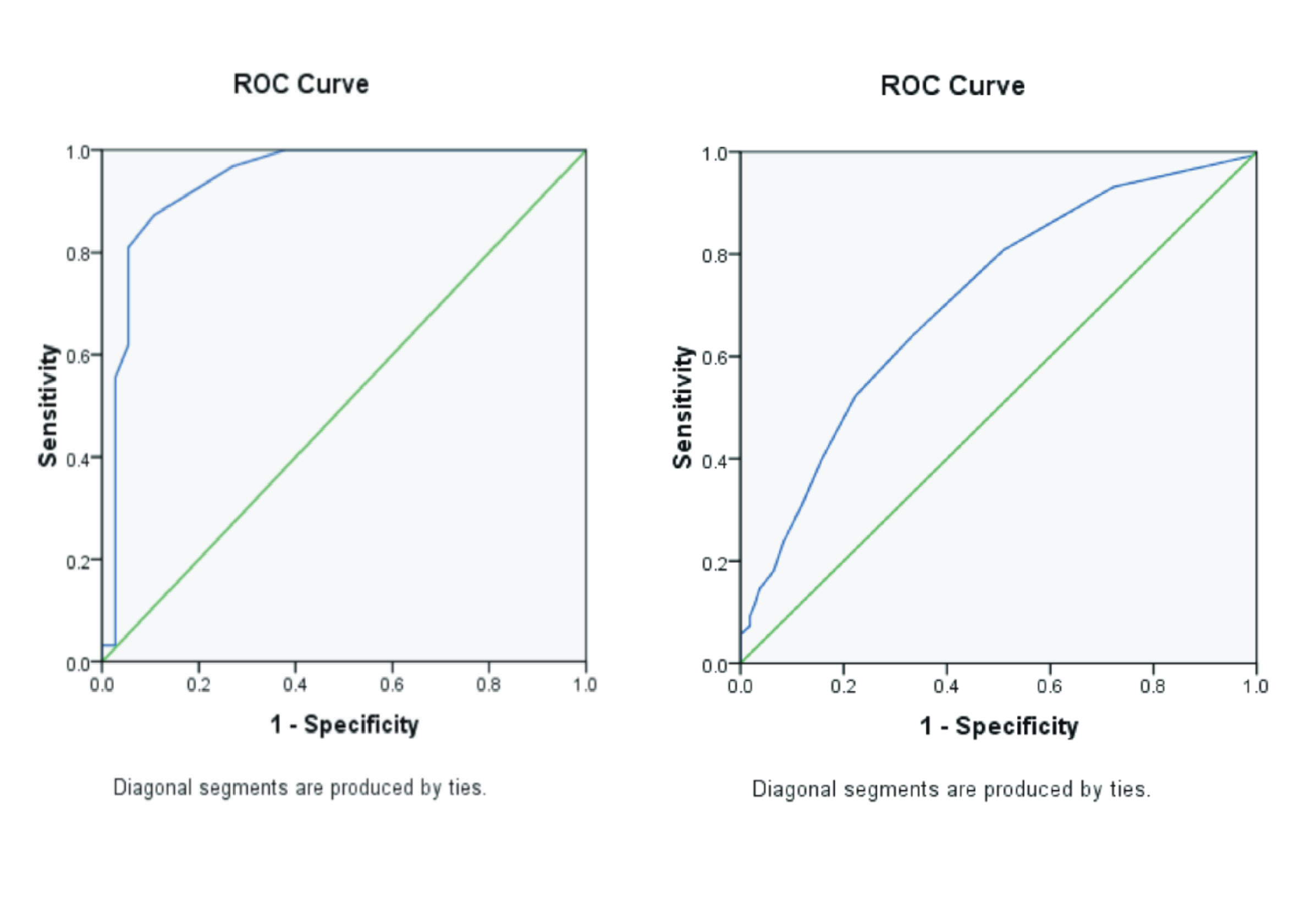THE CORRELATION BETWEEN KNOWLEDGE, ATTITUDES, BEHAVIORS, AND INCIDENTS REGARDING DENGUE FEVER AMONG FARMERS IN THE KALITIDU SUBDISTRICT, BOJONEGORO

Downloads
Background: Dengue Fever (DF) is a type of fever that comes on suddenly and lasts for 2 - 7 days. It is caused by the dengue virus and is spread by the Aedes aegypti mosquito. Purpose: The purpose of this research is to investigate the relationship between the level of knowledge, attitudes, and behaviors about DF and the incidence of dengue. Method: This research utilized a non-experimental, cross-sectional design with a correlational research approach. The data were collected using a probability sampling technique called simple random sampling. This research surveyed 67 family heads, who worked as farmers, to become respondents and their data were analyzed using the Chi-square test. Result: The statistical analysis using the Chi-square test resulted in p-values of 0.000055 for knowledge, 0.00001 for attitudes, and 0.003316 for behavior. All of which were significant at a level of p-value < 0.05. The findings revealed that the majority of respondents 83% had a high level of knowledge about dengue, 77% had a high level of attitudes, and 66% exhibited a high level of behaviors. Out of the 67 respondents, a large percentage 85% had not contracted dengue fever. Conclusion: There is a significant correlation between the level of knowledge, behaviors, and attitudes regarding Dengue Hemorrhagic Fever (DHF) and the incidence of dengue fever.
Alyousefi, T.A.A., Abdul-Ghani, R., Mahdy, M.A.K., Al-Eryani, S.M.A., Al-Mekhlafi, A.M., Raja, Y.A., Shah, S.A., Beier, J.C., 2016. A Household-based Survey of Knowledge, Attitudes and Practices Towards Dengue Fever among Local Urba Communities in Taiz Governorate, Yemen. BMC Infect Dis Vol. 16(1), Pp. 543.
Bhatt, S., Gething, P.W., Brady, O.J., Messina, J.P., Farlow, A.W., Moyes, C.L., Drake, J.M., Brownstein, J.S., Hoen, A.G., Sankoh, O., Myers, M.F., George, D.B., Jaenisch, T., Wint, G.R.W., Simmons, C.P., Scott, T.W., Farrar, J.J., Hay, S.I., 2013. The Global Distribution and Burden of Dengue. Nature Vol. 496(7446), Pp. 504–507.
Decree of The Minister of Health, 2021. Tentang Pedoman Nasional Pelayanan Kedokteran Tata Laksana Infeksi Dengue pada Dewasa. Indonesia.
Fatmawati, Sebayang, Rahayu, 2019. The Correlation Between Knowledge of Dengue Fever and The Incidence of Dengue Fever among Pregnant Women in Jakarta, Indonesia. Kesmas: National Public Health Journal Vol. 13(1), Pp. 39-41.
Koenraadt, C.J.M., Sithiprasasna, W.T., Ratana, Kijchalao, U., Jones, J.W., Scott, T.W., 2006. Dengue Knowledge and Practices and Their Impact on Aedes Aegypti Populations in Kamphaeng Phet, Thailand - PubMed. The American Journal of Tropical Medicine and Hygiene Vol. 74(4), Pp. 692-700.
Lee, H.S., Nguyen-Viet, H., Nam, V.S., Lee, M., Won, S., Duc, P.P., Grace, D., 2017. Seasonal Patterns of DengueFever and Associated Climate Factors in 4 Provinces in Vietnam from 1994 to 2013. BMC Infect Dis Vol. 17, Pp. 218.
Listyorini, P.I., 2016. Faktor-Faktor yang Mempengaruhi Perilaku Pemberantasan Sarang Nyamuk (PSN) pada Masyarakat Karangjati Kabupaten Blora. Infokes: Jurnal Ilmiah Rekam Medis dan Informatika Kesehatan Vol. 6(1), Pp. 6-14.
Ministry of Health, 2020. Data Kasus Terbaru DBD di Indonesia. URL https://www.kemkes.go.id/id/rilis-kesehatan/data-kasus-terbaru-dbd-indonesia (accessed 11.30.23).
Ministry of Health, 2021. Situasi DBD. Jakarta.
Mokodompit, P., Engkeng, S., Kalesaran, A.F.C., 2019. Hubungan antara Pengetahuan dan Sikap Kepala Keluarga dengan Tindakan Pemberantasan Sarang Nyamuk Demam Berdarah Dengue di Kelurahan Paniki Bawah Kecamatan Mapaget Kota Manado. Jurnal KESMAS Vol. 8(7), Pp. 271-277.
Nani, N., 2017. The Relationship Between PSN Behavior with Existence Larvae of Aedes aegypti In Port of Pulang Pisau. Jurnal Berkala Epidemiologi Vol. 5(1), Pp. 1-12.
Nayak, R., Gupta, S., Vidyarthi, S., 2015. A Study on The Knowledge, Attitude, and The Practice of Generic Medicines among The Doctors in A Tertiary Care Teaching Hospital in South India. Natl J Physiol Pharm Pharmacol Vol. 5(1), Pp. 39.
Rahmawati, A.P., 2016. Surveilans Vektor dan Kasus Demam Berdarah Dengue (Skripsi). Universitas Muhammadiyah Semarang, Faculty of Public Health.
Rakhmani, A.N., Limpanont, Y., Kaewkungwal, J., Okanurak, K., 2018. Factors Associated with Dengue Fever Prevention Behaviours among The General Public in Vietnam: A Cross-Sectional Study. BMC Public Health Vol. 18(1), Pp. 19.
Rojali, Indah Restiaty, Lisa, D., Setyadi, M.D., 2023. Hubungan Perubahan Iklim dengan Kejadian Demam Berdarah Dengue (DBD) di Kota Administrasi Jakarta Timur. Jurnal Sulolipu : Media Komunikasi Sivitas Akademika dan Masyarakat Vol. 23(1), Pp. 172-186.
Rosenstock, I.M., 1974. Historical Origins of the Health Belief Model. Health Education Monographs Vol. 2(4), Pp. 328-335.
Santos, L. S, Souza, L. A, Rodrigues, M. S, Borges, L. J, 2018. Association Between Knowledge And Practice Regarding Dengue Fever In A Brazilian Urban Community. PLoS Neglected Tropical Diseases Vol. 12(2), Pp. e0006308.
Sari, Nursasi, Kristiana, 2017. The Relationship between Knowledge and Prevention Practices of Dengue Fever among Residents in Depok, West Java, Indonesia. Indian Journal of Public Health Research & Development Vol. 8(3), Pp. 95-100.
Simmons, C.P., Farrar, J.J., van Vinh Chau, N., Wills, B., 2012. Dengue. New England Journal of Medicine Vol. 366(15), Pp. 1423-1432.
Suaya, J.A., Shepard, D.S., Siqueira, J.B., Martelli, C.T., Lum, L.C.S., Tan, L.H., Kongsin, S., Jiamton, S., Garrido, F.,Montoya, R., Armien, B., Huy, R., Castillo, L., Caram,M., Sah, B.K., Sughayyar, R., Tyo, K.R., Halstead, S.B.,2009. Cost of Dengue Cases in Eight Countries inThe Americas and Asia: A Prospective Study. Am JTrop Med Hyg Vol. 80(5), Pp. 846-855.
Sulistyawati, S., Fatimah, A.N., Aqmarina, N., 2023. Spatial Analysis and Risk Factors of Dengue Hemorrhagic Fever in Yogyakarta City. International Journal of Community Medicine And Public Health Vol 10(12), Pp. 4654-4659.
Thisyakorn, U., Saokaew, S., Gallagher, E., Kastner, R., Sruamsiri, R., Oliver, L., Hanley, R., 2022. Epidemiology and Costs of Dengue in Thailand: A Systematic Literature Review. PLOS Neglected Tropical Diseases Vol. 16(12), Pp. e0010966.
Wawan, A., Dewi., 2011. Teori dan Pengukuran Pengetahuan, Sikap, dan Perilaku Manusia. Nuha Medika, Kuningan, Jawa Barat.
WHO, 2019. Dengue and Severe Dengue. URL https://www.who.int/news-room/questions-and-answers/item/dengue-and-severe-dengue (accessed 12.1.23).
Wong, L.P., Shakir, S.M.M., Atefi, N., Abu Bakar, S., 2015. Factors Affecting Dengue Prevention Practices: Nationwide Survey of The Malaysian Public - PubMed. PLoS One Vol. 10(4), Pp. e0122890.
Yuliantari, P., Damayanti, P., Damayanti, M., 2022. The Association between Community Knowledge Level and Behavior on Dengue Hemorrhagic Fever Prevention in Tourism Area Celuk-Benoa, South Kuta Regency. Journal of A Sustainable Global South Vol. 6(2), Pp. 29-31.
Copyright (c) 2024 Journal of Vocational Health Studies

This work is licensed under a Creative Commons Attribution-NonCommercial-ShareAlike 4.0 International License.
- The authors agree to transfer the transfer copyright of the article to the Journal of Vocational Health Studies (JVHS) effective if and when the paper is accepted for publication.
- Legal formal aspect of journal publication accessibility refers to Creative Commons Attribution-NonCommercial-ShareAlike (CC BY-NC-SA), implies that publication can be used for non-commercial purposes in its original form.
- Every publications (printed/electronic) are open access for educational purposes, research, and library. Other that the aims mentioned above, editorial board is not responsible for copyright violation.
Journal of Vocational Health Studies is licensed under a Creative Commons Attribution-NonCommercial-ShareAlike 4.0 International License


















































